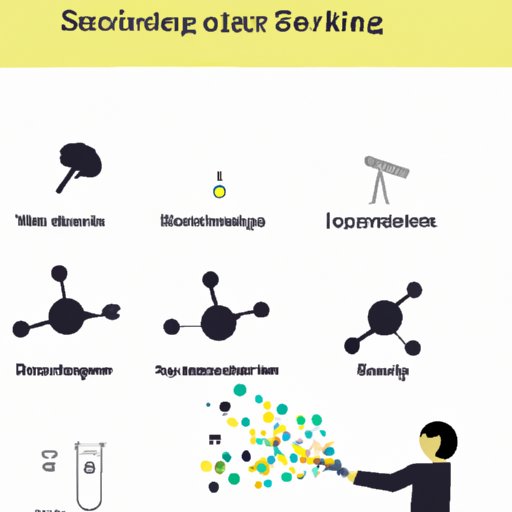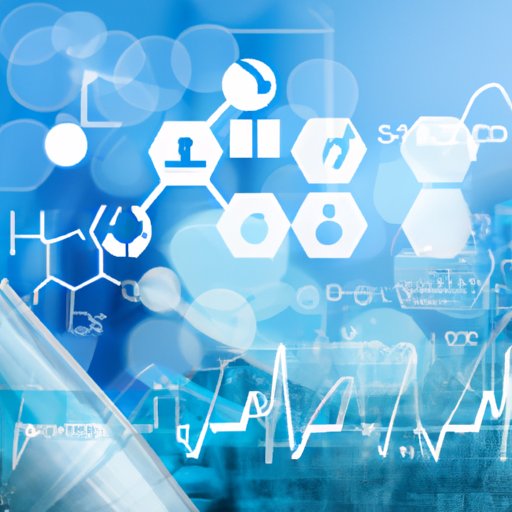Introduction – What is Science?
Science is one of the most important topics in our lives, yet it can be difficult to define. Broadly speaking, science is the systematic study of the structure and behavior of the physical and natural world through observation and experiment. It is the pursuit of knowledge and understanding of the natural and physical universe, based on evidence and facts. Science is a way of thinking and exploring that helps us make sense of the world around us.
History of Science: A Look at How Far We’ve Come
Throughout history, science has been an integral part of human civilization. From ancient Greek philosophers to modern-day researchers, many have contributed to the development and advancement of scientific knowledge. Let’s take a look at some of the major milestones in the history of science.
Ancient Greek Contributions to Science
The Ancient Greeks are widely credited with laying the foundations of modern science. They were the first to use logic and reason to explain natural phenomena. The philosopher Aristotle (384–322 BC) was one of the most influential early scientists. He developed the scientific method, which involves making observations, forming hypotheses, and testing theories. Aristotle also studied physics, astronomy, biology, and zoology.
The Renaissance and Scientific Revolution
The Renaissance (14th–17th century) was a period of great intellectual and cultural growth. During this time, scientists such as Galileo Galilei (1564–1642), Johannes Kepler (1571–1630), and Isaac Newton (1643–1727) made important contributions to the development of modern science. Their discoveries laid the groundwork for the Scientific Revolution, which saw the emergence of new scientific theories and the birth of the scientific method.
Modern Science and its Impact
In the 20th century, scientific research and development reached unprecedented levels. Scientists made groundbreaking discoveries in fields such as genetics, astrophysics, and particle physics. These advances have led to major technological developments, from computers and the internet to space exploration and medical treatments.

Exploring the Branches of Science
Science is divided into various branches, each with its own focus and methodology. Let’s take a look at some of the major fields of science.
Physical Sciences
The physical sciences involve the study of matter and energy and their interactions. This includes fields such as physics, chemistry, and geology. Physical scientists seek to understand the fundamental laws of nature and how they apply to the universe.
Life Sciences
The life sciences include fields such as biology, botany, zoology, and ecology. Life scientists study living organisms to understand their structure, function, growth, evolution, and interactions with their environment.
Earth Sciences
Earth scientists study the Earth and its processes. This includes fields such as geology, oceanography, meteorology, and hydrology. Earth scientists seek to understand the Earth’s composition, structure, and history.
Social Sciences
The social sciences involve the study of human behavior and societies. This includes fields such as psychology, sociology, anthropology, economics, and political science. Social scientists seek to understand the behavior of individuals and groups in different contexts.
Science and Technology: Changing the World
Science and technology have had a profound impact on our lives. In recent decades, scientific advances have enabled us to develop new technologies that have revolutionized the way we live.
Advances in Medicine and Healthcare
Scientific research has made remarkable progress in the field of medicine and healthcare. Vaccines, antibiotics, and other treatments have helped reduce the spread of infectious diseases and save countless lives. Medical imaging technologies such as MRI and CT scans allow doctors to diagnose and treat illnesses more accurately than ever before.
Technological Advances
In the last century, scientific research and development have enabled us to create powerful technologies that have drastically changed our lives. Computers and the internet have opened up new possibilities for communication, education, and entertainment. Robotics and artificial intelligence are being used in a variety of industries, from manufacturing to healthcare.
Environmental Challenges
The increasing population and rapid industrialization of the last century have caused severe environmental problems. Scientists are now working to find solutions to these challenges. Research is being conducted into renewable energy sources and sustainable agriculture, as well as ways to reduce air and water pollution.

Science in Everyday Life: How Science Affects Us
We use science in our everyday lives, often without even realizing it. Many of the products and services we rely on are the result of scientific research and development.
Food Production and Nutrition
Food production and nutrition are heavily reliant on science. Genetic engineering has allowed us to grow more robust crops with higher yields. We have also been able to produce healthier foods with fewer calories, fats, and preservatives. Nutritional science has enabled us to understand the role of vitamins, minerals, and other nutrients in maintaining health.
Transportation and Communication
Science has revolutionized the way we travel and communicate. Automobiles, airplanes, and trains have made it easier and faster to get from place to place. The invention of the telephone and the internet have revolutionized communication, allowing us to instantly connect with people all over the world.
Entertainment and Leisure
We use science in our leisure activities as well. Video games, virtual reality, and 3D movies are just a few examples of how we use science to entertain ourselves. We also rely on science to stay informed and up to date with the latest news and trends.
Education and Research
Science is essential to the process of learning and discovery. It provides us with the tools and methods to explore the world and gain new insights. Research enables us to build upon existing knowledge and make new discoveries. Science is also used in the classroom to teach students about the world and how it works.

The Impact of Scientific Research and Development
Scientific research and development have had far-reaching effects on the world. Let’s take a look at some of the major impacts of science.
Economic Impacts
Scientific research and development have had a major impact on the economy. Technological advances have increased productivity and efficiency, resulting in higher profits and lower costs. This has enabled businesses to expand and create jobs, boosting economic growth.
Globalization
Scientific advances have enabled us to connect with people across the globe. Technology has made it easier to communicate, travel, and do business internationally. This has resulted in increased global trade and investment, leading to greater economic integration and interdependence.
Social Impacts
Scientific research and development have had a major impact on society. Advances in medicine and healthcare have improved our quality of life and extended our life expectancy. Technological advances have enabled us to communicate and collaborate more easily, breaking down barriers between cultures and nations.
Conclusion
Science has had a profound impact on our lives, from shaping our understanding of the world to changing the way we live. It has enabled us to make remarkable advances in medicine and healthcare, technology, and communication. Science is also an integral part of everyday life, from the food we eat to the entertainment we enjoy. Understanding science is essential for appreciating its impact and reaping its benefits.
(Note: Is this article not meeting your expectations? Do you have knowledge or insights to share? Unlock new opportunities and expand your reach by joining our authors team. Click Registration to join us and share your expertise with our readers.)
